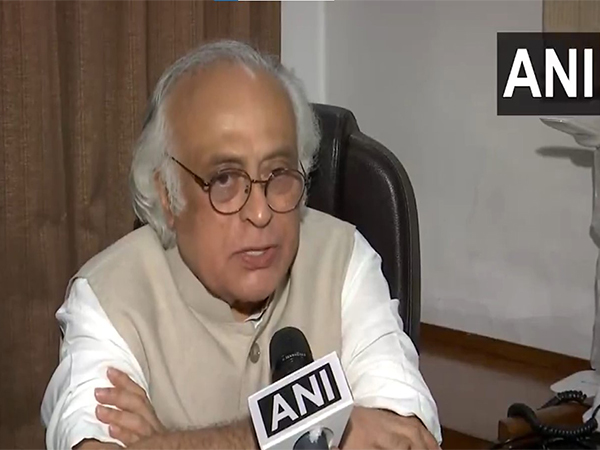New Delhi [India], August 24 (ANI): Senior Congress leader and Member of Parliament Jairam Ramesh has sharply criticized the Great Nicobar mega infrastructure project, describing it as a “maha ecological disaster” and alleging serious violations of local tribal rights.
In a post on social media website X, Ramesh wrote that despite his discussion with the concerned minister but despite that the project continues.
“The Great Nicobar mega infrastructure project is without doubt a maha ecological disaster. I have had exchanges with the Union Minister of Environment and Forests on this subject but the march of folly continues,” the Congress MP wrote.
He referenced fresh evidence that the local administration had misrepresented its compliance with the Forest Rights Act, 2006.
According to Ramesh, officials have made false claims that “(i) the rights of local tribal communities under the Forest Rights Act, 2006 have been identified and settled; (ii) the consent of the affected tribal communities themselves has been lawfully obtained.”
Ramesh further wrote, “It has been abundantly clear for some time that the project is simply being bulldozed through.”
According to a press release from the Ministry of Environment, Forest and Climate Change in November 20224, the decision regarding the development of the Great Nicobar Island project has been taken after careful consideration of potential environmental impacts on the island’s ecology, as well as the significant strategic, defence, and national importance of the developmental projects.
According to the Environment Impact Assessment (EIA) Notification, 2006, as amended periodically, prior environmental clearance is mandatory for all new projects and activities, or the modernisation of existing ones, listed in the notification’s schedule. The process involves an assessment of project impacts and the preparation of an Environmental Management Plan (EMP) through stages such as screening, scoping, public consultation, and appraisal.
The release noted that multiple studies were conducted to assess the environmental impact and propose mitigation measures. These studies were carried out by prominent statutory and non-statutory bodies, including the Zoological Survey of India (ZSI), the Salim Ali Centre for Ornithology and Natural History (SACON), the Wildlife Institute of India (WII), and the Indian Institute of Science (IISc), as part of the EIA/EMP preparation. Specialist organisations such as the Indian Institutes of Technology (IITs), the National Institute of Ocean Technology (NIOT), the National Centre for Coastal Research (NCCR), and the National Institute of Oceanography (NIO) were also involved during the appraisal process.
An independent Expert Appraisal Committee (EAC), comprising experts in science and engineering, conducted a detailed scrutiny of the EIA/EMP report during the project appraisal. The environmental clearance granted includes 42 specific conditions addressing each component of the project to safeguard marine and terrestrial biodiversity.
Three independent monitoring committees have been established to oversee the implementation of the Environmental Management Plan.
Additionally, a High-Power Committee (HPC) was constituted by the Ministry of Environment, Forest and Climate Change in compliance with the National Green Tribunal’s order dated April 3, 2023.
This information was provided by Union Minister of State for Environment, Forest and Climate Change Kirti Vardhan Singh in a written reply in the Lok Sabha. (ANI)
Disclaimer: This story is auto-generated from a syndicated feed of ANI; only the image & headline may have been reworked by News Services Division of World News Network Inc Ltd and Palghar News and Pune News and World News
HINDI, MARATHI, GUJARATI, TAMIL, TELUGU, BENGALI, KANNADA, ORIYA, PUNJABI, URDU, MALAYALAM
For more details and packages













